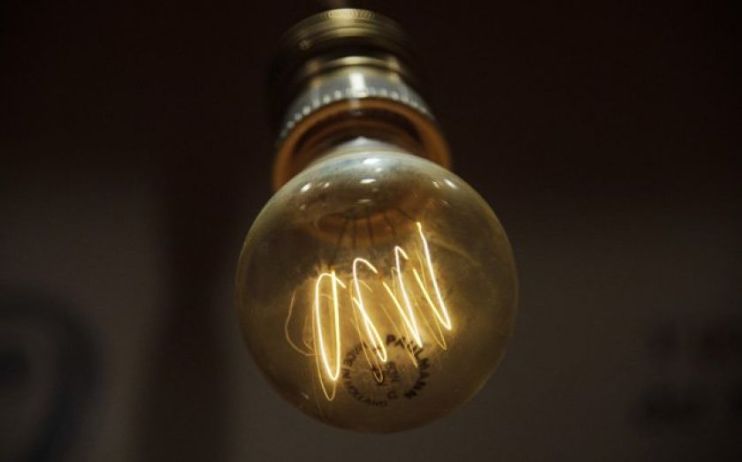Energy crisis deepens as Bulb enters special administration amid soaring wholesale costs

Taxpayers are at risk of footing the bill to protect Bulb’s 1.7 million customers, after the struggling energy firm entered administration yesterday.
The challenger company now faces the prospect of being de-facto nationalised, with its operations being run by appointed administrators and the Department for Business, Energy and Industrial Strategy (BEIS).
BEIS approved Ofgem’s request last night to place Bulb into a special administration regime (SAR).
A Government spokesperson said: “We have agreed with Ofgem on the appointment of special administrators for Bulb and are taking this forward in the quickest possible timeframe.
The market regulator will now apply through the courts for an administration order, which will allow the secretary of state to make grants and loans to Bulb, and also give guarantees for any sum borrowed while it is in administration.
Approval from the Treasury is needed for any public financial support that is made to the administrator.
In a statement, Bulb said it was entering special administration to protect its customers.
Bulb’s spokesperson added: “If you’re a Bulb member, please don’t worry as your energy supply is secure and all credit balances are protected”
This was supported by Ofgem who also told customers not to worry and that Bulb will continue to operate as normal.
In a statement, the regulator said: “Ofgem is working very closely with Government. This includes plans for Ofgem to apply to Court to appoint an administrator who will run the company. Customers will see no disruption to their supply and their account and tariff will continue as normal. Bulb staff will still be available to answer calls and queries.”
Bulb’s fall from grace reflects industry-wide crisis
The announcement is no great surprise, as Bulb has been tussling for months with soaring wholesale prices, which have increased by over 250 per cent this year.
It will be the first energy firm to enter the regime since the Energy Act 2011, as the 21 firms that have ceased trading in the past three months have gone through the supplier of last resort process.
However, Bulb’s size and the cost of on-boarding its vast customer base made the last resort process impractical.
The dual-supplier market has also halved over the past 12 months.
Founded in 2015, Bulb grew to represent six per cent of the market, but found itself unable to cover costs of supplying energy to customers, which it says reached £4 per therm.
Its collapse comes amid continued debate about the efficacy of the consumer price cap limits domestic households energy bills to £1,277 per year for average use.
Bulb cited the price cap as a factor in its struggles, revealing the current energy price cap prevents energy firms charging more than £0.70 per therm.
Scottish Power CEO Keith Anderson has also called for the price cap to be reformed, and raised fears of a return to a Big Six market without measures to reduce the costs on suppliers.
Ofgem has recently revealed it will launch a consultation on the price cap ahead of any potential price increases next April, with findings expected to reported by February 2022.
Alongside the price cap, Bulb has also failed to find new funding or a prospective buyer despite assistance from US investment bank Lazard over the past few months.
It is the seventh biggest energy firm and three times the size of the biggest supplier, Avro Energy, which had its customers designated by Ofgem.
Bulb also intends to place its parent company, Simply Energy, into administration too.
“Tipping point” for the energy sector
The energy firm will continue to trade during the adminsitration process and customers are unlikely to see any difference in their supply.
Nevertheless, the running costs will be met by the state, and it is highly unlikely all of Bulb’s customers will move at once or to the same supplier.
Justina Miltienyte, energy policy expert at Uswitch.com, believes the development signals the “tipping point” for the UK’s energy crisis.
Not just because of its size, but also because Bulb entered administration despite the “competitive offering” it provided consumers.
She said: “Unlike some of the smaller suppliers who recently ceased to trade, Bulb operated with a strong business model combined with a competitive offering for consumers. Ultimately this demise wasn’t caused by a badly run business model. Instead, Bulb was choked off by the way the Government decided to structure the current energy market with the price cap.”
Cornwall Insights has described Bulb’s fall from grace as a sign of “dark times” for the energy sector.
Robert Buckley, head of relationship development, said: “The failure of Bulb highlights the stress suppliers have been under this autumn. Suppliers have been squeezed with the default tariff price cap limiting the amount they can charge and a wholesale market price that has far exceeded this.”
Bulb’s announcement also follows hours of reported talks between the Government and Sequioa, as its parent company apparently owes the fund £50m which it wanted secured before it entered administration.
Meanwhile, Ofgem has designated Neon Energy and Social Energy Suppliers 35,500 combined customers to British Gas through its supplier of last resort process.